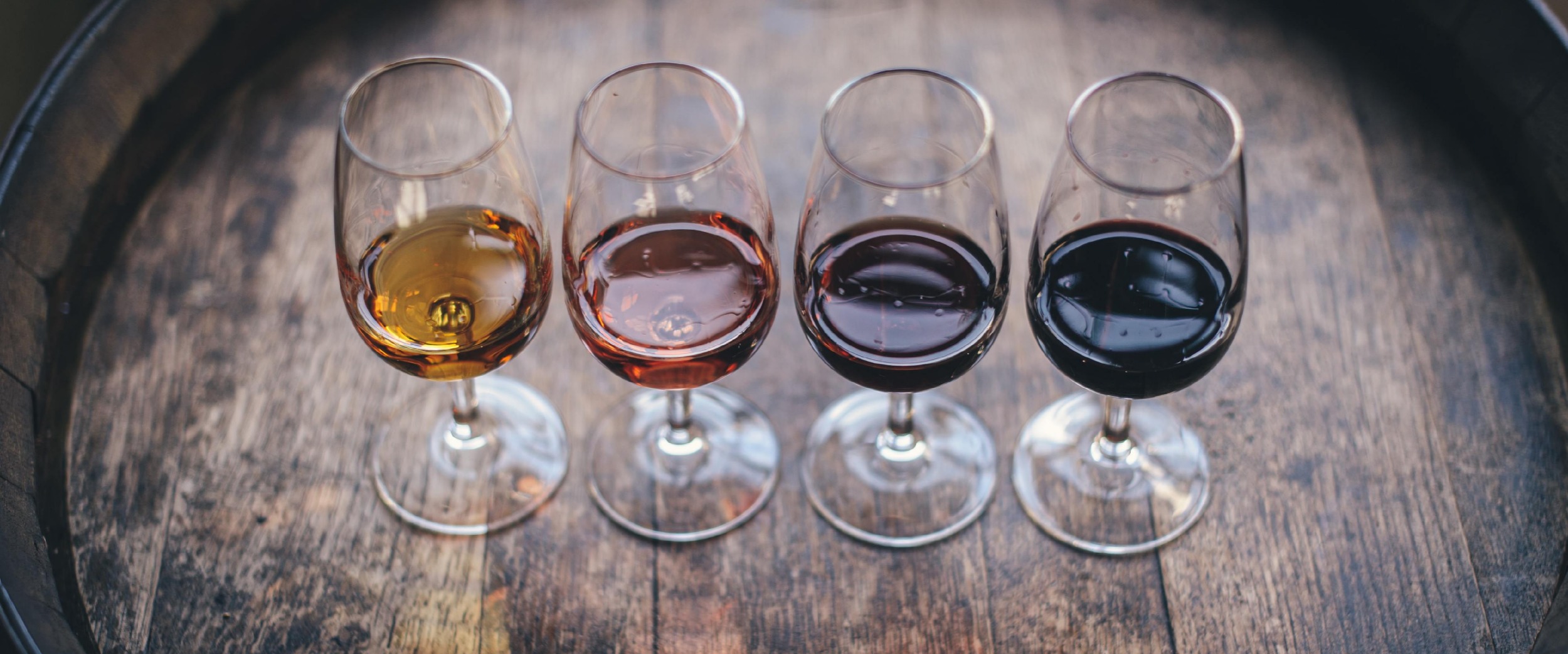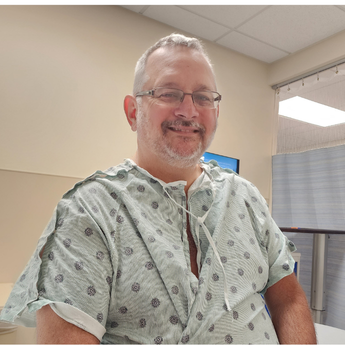Cathy Leman, MA, RD, CPT, is a registered dietitian nutritionist, certified personal trainer, nutrition therapist, blogger, speaker, and the founder of dam. mad. About BREAST CANCER®. In October 2014, after being diagnosed with Stage 1 invasive ductal carcinoma breast cancer, Cathy made it her mission to serve the breast cancer community with evidence-based recommendations and guidance. She educates, informs and inspires women to eat, exercise and practice self-care/wellbeing with confidence.
By Cathy Leman, MA, RD, CPT
Want to meet me for a drink? Grab a glass of wine and discuss the day and life in general? In my pre-breast cancer days, I loved my red wine. Whether catching up with a friend or sharing a meal with my husband, a glass (or two) of a robust red was de rigueur. Occasionally I’d sip dry Chardonnay, but those peppery, heavy Zin’s stole my heart. On two separate trips to Europe, wine figured prominently in the itinerary. Visiting Burgundy, France and the Tuscan region of Italy, how could it not? One glorious afternoon in Italy, my husband and I toured an obscure winery. We tasted a variety of wines with a group of folks we’d met at a cooking class earlier that day. Someone suggested this hidden gem, and we eagerly tagged along. We all knew each other only from the few hours we’d cooked pasta together. It’s a memory I’ll treasure forever. In this precious life there are so many simple pleasures to enjoy. A glass of really good wine is one.
Now?
I no longer drink.
It’s not that I’ve developed an aversion to my beloved red wine. Rather, I’ve developed a violent aversion to breast cancer. Anything I can do to reduce my risk of recurrence, I’m in. Lest you think I’m some kind of alcohol saint, I assure you, I’m not. I continued to drink wine even after my diagnosis. I drank wine during radiation. I drank wine after I finished all my treatment. My “pours” were minimal, and not every day. But I didn’t quit. I never did quit outright. Didn’t declare an “I quit drinking” day. My wine drinking simply faded away. As did my tolerance level, which was when I began to randomly feel crappy after a single glass of wine. That’s so unfair! But between sub-optimal post-menopausal alcohol metabolism and a dwindling tolerance to booze, it happens.
I hated not knowing if I’d wake up clear or foggy. My days are too precious to spend in a haze, waiting desperately to feel better. I have people to help, for heaven’s sake! Around the time my tolerance began to tank, I took a closer look at research on the link between alcohol and breast cancer. And that sealed the no-more-drinking deal for me. I deemed it too risky. I wondered if there was a link between red wine and breast cancer, but I found there is a link between all types of alcohol and breast cancer. Even beer and breast cancer!
What the Research Says About The Link between Alcohol and Breast Cancer
Besides maybe soy, I don’t think any food or beverage causes more controversy or confusion than alcohol.
Here’s the bottom line:
There’s strong evidence that alcohol consumption increases the risk of an initial diagnosis for both pre- and post-menopausal breast cancer. But I have already been diagnosed and treated for breast cancer. This does not concern me, right?
With mass volumes of research on this topic (current as well as ongoing), I couldn’t possibly cover it all here. To reign this topic in, I answer the six most common questions I get regarding alcohol and breast cancer recurrence.
1. Do I have to stop drinking after a breast cancer diagnosis?
No. You don’t have to do anything you don’t want to do. Some thoughts from the breast cancer trenches re: drink/don’t drink:
- “Life is short. Drink the wine.”
- “Life is precious. Live it up and enjoy it.”
- “I won’t miss out on all the things I love.”
- “I want to enjoy life and that means drinking.”
- “It doesn’t matter whether you drink or not. Some people never drink and get cancer. Some drink a lot and don’t get it. I don’t believe the studies.”
People have strong opinions about their alcohol! And they’re entitled to them. But please know this, alcohol is carcinogenic. To reduce risk of an initial breast cancer diagnosis, there is no safe level of alcohol intake. There’s a risk relationship between alcohol and breast cancer, even at low levels of consumption. The World Cancer Research Fund’s (WCRF) alcohol and cancer report (a gold standard reference) indicates a confirmed link between alcohol consumption and pre- and postmenopausal breast cancer initial diagnosis.
2. What about risk of alcohol and breast cancer recurrence? Or a second primary breast cancer?
One systematic review looked at six databases and 16 studies, of which 11 assessed breast cancer recurrence. About half of the 11 studies showed a modest, but significant association between alcohol consumption and increased risk of breast cancer recurrence. Two of the included studies suggested the association was stronger in postmenopausal women. This same study observed that the association between alcohol and second primary breast cancer is less clear. However, the WCRF report on diet, nutrition, physical activity and breast cancer survivors does not at this time find evidence strong enough to make specific recommendations for survivors on alcohol and recurrence risk.
As a dietitian, I’m trained to use research in making nutrition recommendations for others. As a breast cancer survivor, I make personal nutrition and diet decisions based on my diagnosis AND the research. I believe alcohol may have contributed to my cancer. Of course, I have no way of confirming that. But who’s to say continuing to drink wouldn’t negatively influence my recurrence risk? I just couldn’t discount the connection found in the review (as well as other studies and professional articles). And research is ongoing. Because the evidence isn’t strong enough NOW, doesn’t mean it won’t be in the future.
I understand how findings like those in the WCRF report make it easy to dismiss the concerns around alcohol. And should you choose to? There’s nothing wrong with that. You get to decide where you stand on the issue. You get to decide whether or not you want to take that risk, or even whether or not to choose to believe the studies. As evidenced above, without alcohol, some people don’t consider life worth living, can’t imagine living life to the fullest. Other people live fulfilling, wildly satisfying lives without touching a drop. There’s no judgment either way.
If you’re conflicted, consider experimenting with not drinking and see how that feels. If it doesn’t work for you? Pour yourself a glass of something and enjoy it guilt free.
3. Does alcohol raise estrogen levels?
Yes.
Drinking alcohol increases the serum level of endogenous estrogens. Serum is the clear liquid that can be separated from clotted blood. “Endogenous” means produced or grown in the body. Even drinking small amounts of alcohol, say 1.25 to 2.5 standard drinks per day raises the level of estrogen. Why is estrogen a problem? In estrogen receptor (ER)-positive human breast cancer cells, alcohol increases ER-dependent gene expression. This results in cells being reproduced quickly and at high speed. If you had or have ER-positive breast cancer, the goal now is to keep estrogen levels low. You’re likely taking medication to do that. Since alcohol raises estrogen levels, drinking can be counterproductive to that effort.
4. Does the TYPE of alcohol matter?
No.
It doesn’t matter your drink of choice. A juicy red wine, icy cold beer or fancy cosmopolitan all deliver alcohol to your system. Wine, beer and spirits contain ethanol, which appears to cause the damage. Ethanol is a clear, colorless liquid found in all types of alcohol, and the main active ingredient in all alcoholic beverages.
5. What’s a SAFE amount of alcohol to drink?
Depending on which research you read, or from whom you get your information, you’re likely to get conflicting and confusing messages on how much alcohol is safe to drink after you’ve been diagnosed. Because of the inconsistencies and variations in research, it’s difficult to draft concrete guidelines. Remember, the WCRF hasn’t issued specific alcohol guidelines for people who have been diagnosed with breast cancer.
This is where you must decide what’s comfortable for you. Some evidence suggests any alcohol consumption, even at levels as low as 6 grams per day moderately increases the risk of recurrence, particularly in postmenopausal women. That’s about 1.2 teaspoons of pure alcohol, or less than ½ of a standard drink. If that information gives you pause, but you’re not ready to give up drinking completely, think about what matters most to you.
- If enjoying a special, fine dining meal means drinking good wine; consider drinking only at special meals.
- If holidays aren’t the same without your traditional fancy drink; continue to enjoy alcohol on those annual occasions.
- If the best part of your monthly book club is wine with friends; treat yourself to a glass once per month.
There are guidelines specific to alcohol consumption re: reducing risk of an initial breast cancer diagnosis and not guidelines for risk of recurrence or for those living with breast cancer.
6. Why do I feel guilty when I drink?
I’m not sure.
Guilt comes from a different place for everyone. While there’s no data to support my response, I’ll share what I know from my personal experience and graduate studies in health psychology. Guilt is a negative emotion. You can feel guilty for something you DID do. You can feel guilty for something you DIDN’T do. Those of us who’ve been diagnosed want to live the healthiest life we can, for as long as we can. Regarding alcohol, we know what the research says. We know what our doctors suggest. And yet, at the end of the day, sometimes we just want to ignore all of that. Ignore the fact that we were diagnosed in the first place. Have a glass of wine and forget.
But that can feel like we’re inviting the cancer and that can cause feelings of guilt.
Please remember:
Just like no one food causes cancer, neither can one alcoholic drink. Guilt is an energy sucker. Let. It. Go.
Wrapping It All Up
To drink or not to drink? That is the question once you’ve been diagnosed. I hope I’ve cleared up some of the confusion and given you guidance on making the decision that best serves you.
Photo by Maksym Kaharlytskyi on Unsplash







